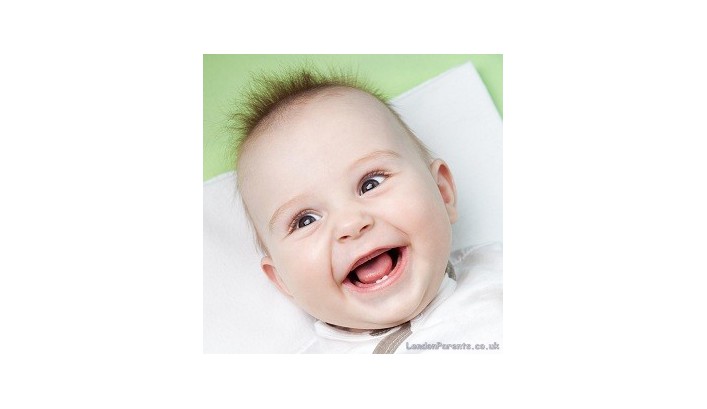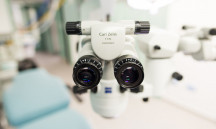Article Categories
News
-
20 July
-
04 November
-
10 July
-
12 June
-
05 June
-
24 September
-
19 September
-
10 May
-
26 April
Website Categories

When will my baby get his first tooth?
Most babies sprout their first tooth at around six months. But your baby may have his first white cap, usually in the front at the bottom, any time between three months and his first birthday.
Your baby's last teeth, which are the second molars, found in the upper and lower back of his mouth, are usually in place by his second year. So by your baby's second birthday, he should have a full set of 20 baby teeth.
Will teething be painful for my baby?
The arrival of your baby's first tooth won't be much fun for either of you. Your baby may be in pain and drool for a month or two before his tooth appears. You could be up at night trying to console him while he waits for a tooth to break through.
To ease his suffering, your baby may start biting, but not out of anger or hostility. Give him something to bite on, or rub his gums gently with a clean finger to help soothe the ache.
Your baby's gums can also become inflamed when he cuts a tooth, which may make his cheeks appear red and swollen. You may worry that your baby has a fever or diarrhoea when a tooth is about to come through, but teething shouldn't cause illness. If your baby seems ill, it's more likely he's coming down with a cold, an infection or a tummy bug. Take him to your doctor if you are concerned.
For some babies, teething can be a fairly painless mouth makeover. One week your baby is sporting a toothless grin, and the next a jagged white edge may appear on the gum surface, without causing much upset.
Celebrate your baby's first tooth by taking lots of pictures, and note its arrival date in his baby book. Your baby's teeth will sprout one after another. After the arrival of the two bottom front teeth, expect the top two middle teeth, then the teeth along the sides and back. Tooth development is hereditary, so if you got your teeth early, chances are your baby will, too.
How can I help my baby through teething?
You can't do anything to encourage your baby's teeth to appear, but you can comfort him if he's in pain:
- Give your baby something cool to chew on, such as a chilled teething ring or a whole, peeled carrot that's been in the fridge. Stay near your baby when he is chewing anything in case of choking.
- If your baby is older than four months, you can rub sugar-free teething gel for babies on his gums. You can buy this from your pharmacy.
- If your baby is older than six months, he may get relief from eating cold foods, such as apple puree or yoghurt, straight from the fridge.
- If your baby is really in distress, you can give him the correct dose of sugar-free infant paracetamol or ibuprofen, as long as he is three months or older. Always follow the correct dosage instructions on the packet. Ask your doctor or pharmacist if you are unsure how much to give your baby.
- Some parents swear by homeopathic teething powder, which you can buy from your pharmacy. However, there isn't any medical evidence that it works.
If your baby has a temperature, or if he is inconsolable, see your doctor. Your baby may have an ear infection or other illness.
How should I care for my baby's teeth?
Once your baby's teeth arrive, it's up to you to keep them clean. It's best to start brushing your baby's teeth as soon as they start to come through.
Once your baby has teeth, try not to put him to bed with a bottle or breastfeed him to sleep. Formula and breastmilk can pool in your baby's mouth at night and lead to tooth decay.
Check with your dentist about giving your baby fluoride. Fluoride can help prevent tooth decay but it's important to give the right amount. Too much may damage your baby's developing teeth.
In a few areas of the UK fluoride is added to drinking water, but in most areas water isn't fluoridated. This can mean babies may need a supplement. Your local water supplier should be able to tell you how much fluoride is in your drinking water.
Your dentist may offer your baby fluoride drops on prescription if he thinks your baby needs them.
Make brushing your baby's teeth a fun part of his bedtime routine. Show him how to move the brush around on his teeth. Use a soft baby toothbrush and a smear of toothpaste, and find one that says 1000ppm fluoride on the tube label. You don't have to brush in a certain direction, just try to get any bits of food out, and clean the surface of his teeth and his gumline.
If your baby doesn't like the taste of the toothpaste, try another brand. If he does indulge in sweets, at a birthday party for example, make sure to brush his teeth soon after he eats. You can also encourage him to finish up with something savoury such as a piece of cheese.
It's a good idea to take your baby along to your own dentist appointments as soon as you can. This will help him to get used to the idea of having his teeth looked at. NHS dental treatment is free for children.
My baby is 10 months and there's no sign of a tooth yet. Should I be worried?
Many babies don't sprout their first tooth until they are a year old, so try not to worry if your baby is still giving you gummy smiles. If you still don't see any sign of a tooth appearing by the time your baby is one, mention it at his next check-up. If your baby was born early, he may start teething a little later.
If your baby has signs of teething, but also seems to be in huge amounts of pain and is crying inconsolably, see your doctor. Teething can be painful, but shouldn't be an terrible ordeal for your baby.
How long will my baby have his first teeth for?
Years! Your baby's milk teeth won't fall out until his permanent teeth are ready to come through. This will happen when he's about six years old.
Related articles
Parenting is no easy task, and for Jordan and Briana Driskell, raising their quintuplets—Zoey, Dakota, Hollyn, Asher, and Gavin&mdash...
Read moreFocus on back to school - include a free...
Emma WallaceThe summer holidays are drawing to a close and September sees pupils heading back to the classroom. Alongside buying new uniform and statio...
Read moreA Starbucks employee went viral after sharing a video where they broke down in tears due to being scheduled for an eight-hour shift. ...
Read more0 comments
No messages yet




